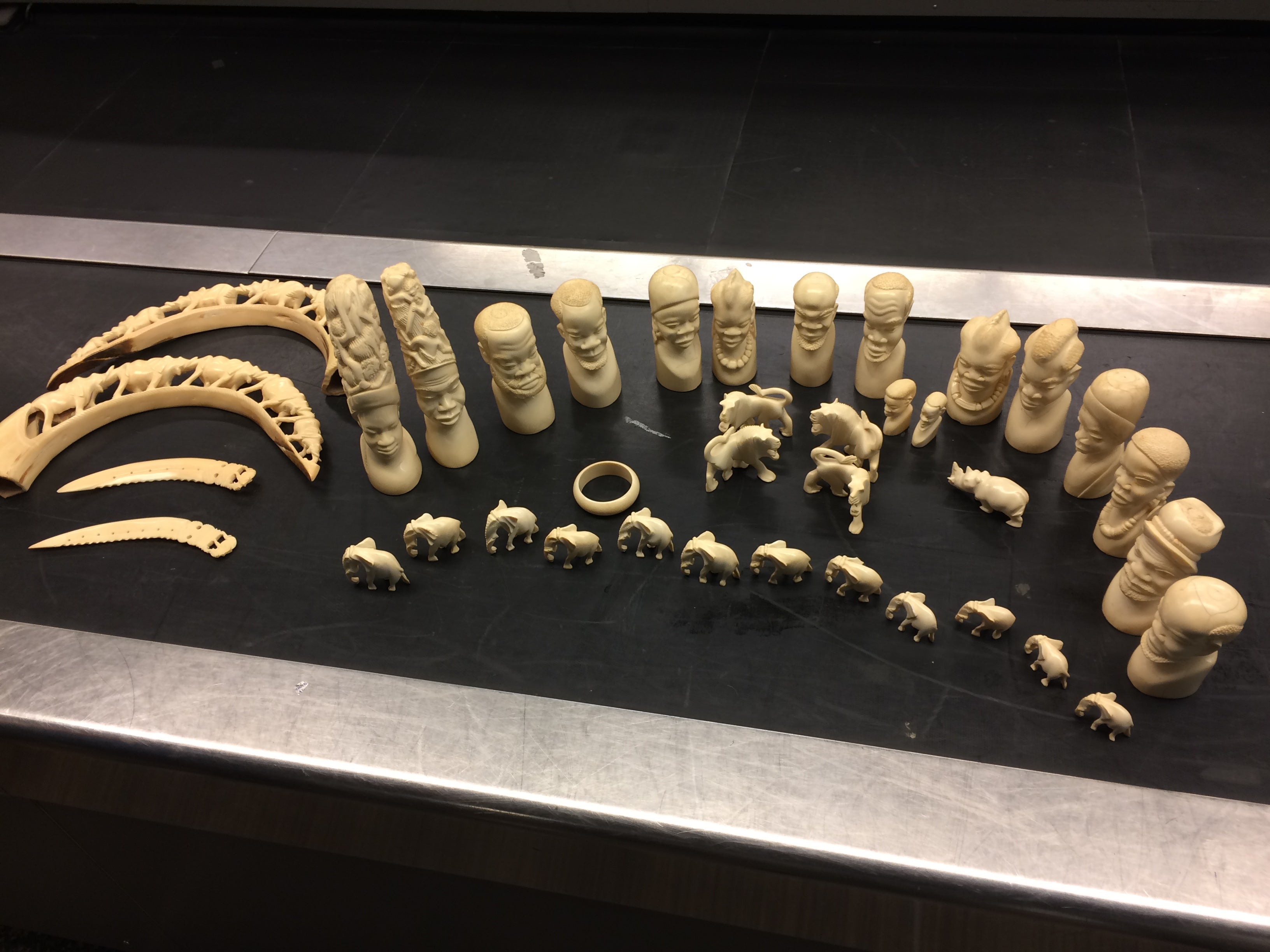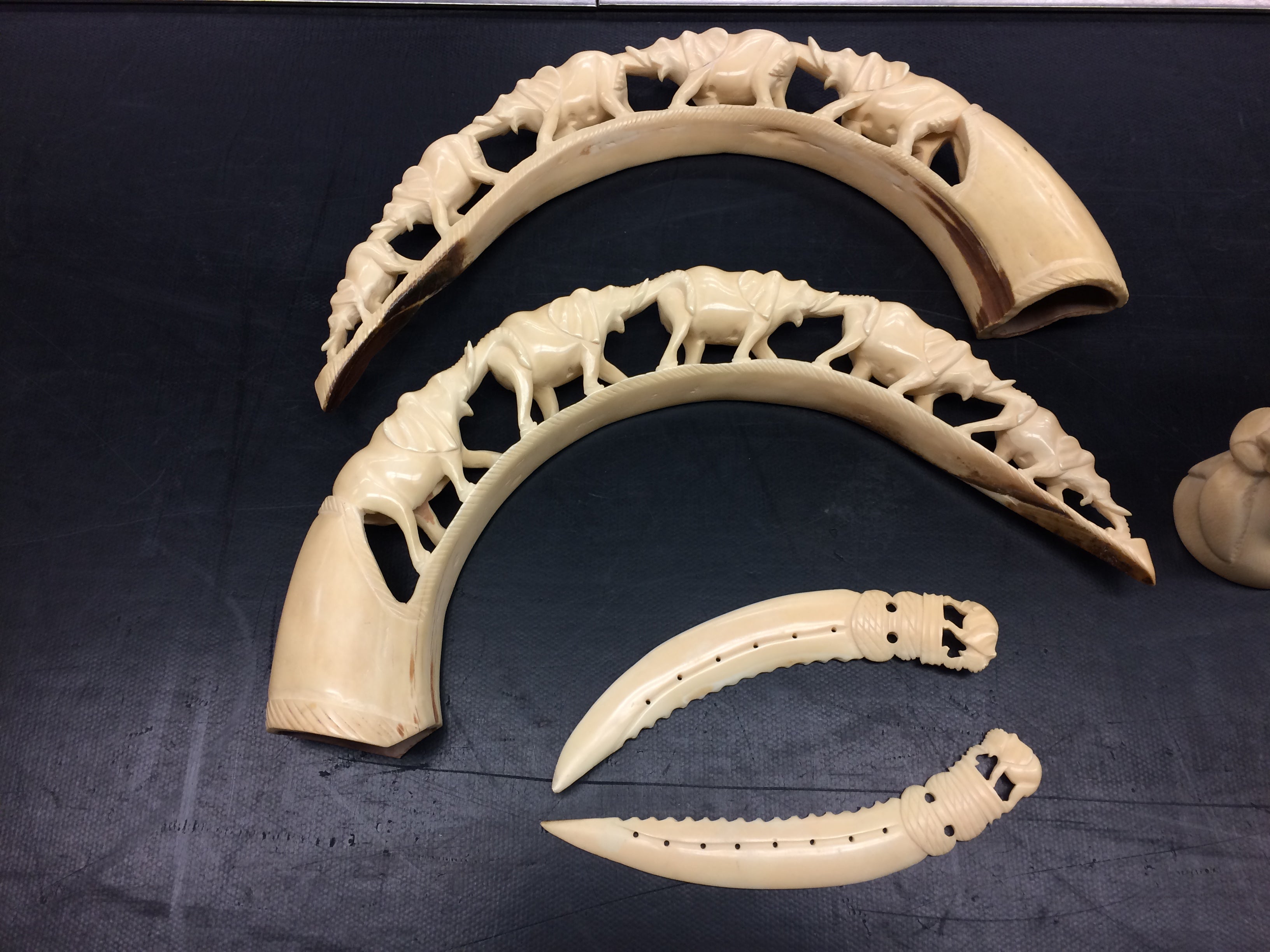Smuggling Ivory Into the US Got This Couple a $500 Slap on the Wrist
Earlier this month, US Customs and Border Protection agriculture specialists at Seattle-Tacoma International Airport (SEA) intercepted a couple arriving from the Philippines who "claimed to be carrying pickled mango," a US Customs and Border Protection spokesperson told The Points Guy.
According to a statement from the department, "inconsistencies" were identified in the travelers' luggage when an agriculture specialist screened the bags. Upon opening the suitcase, 34 pieces of carved elephant ivory were discovered, along with carved warthog and hippopotamus tusks.
Inspectors from the US Fish and Wildlife service were alerted, and the entire collection — approximately 16 pounds of ivory — was seized.

For transporting items in violation of the Convention on International Trade in Endangered Species of Wild Fauna and Flora (CITES) agreement, the couple was fined $500.
"In this particular case," the Customs and Border Protection spokesperson told TPG, "the couple did not initially declare the ivory. If an individual [purchased] ivory products at a time when it was legal, they can legally bring [them] into the US — if they have the proper documentation. This particular couple did not have documentation, therefore, the ivory was seized."

If it strikes you as odd that a couple attempting to smuggle nearly 40 pieces of ivory across the US border was fined the same amount as a woman who left an apple from Delta in her bag, well, you're not alone.

"Fines are based on a variety of factors," the spokesperson explained. A separate spokesperson from the US Fish and Wildlife Service told The Points Guy that "a range of fines" can be issued for illegally importing (or attempting to import) items of this nature. It's a "question for a judge to determine," she added.
Though a $500 fine for trying to casually cross the border with undocumented and almost certainly illegal ivory may feel like an inadequate slap on the wrist, it's worth noting that, as an additional penalty, the ivory — which was valued at $25,000 — was confiscated. The commandeered ivory pieces will be sent to the National Wildlife Property Repository, the "Seattle Times" reported, where they will either be displayed for educational purposes or destroyed.
TPG featured card
at Capital One's secure site
Terms & restrictions apply. See rates & fees.
| 5X miles | Earn 5X miles on hotels, vacation rentals and rental cars booked through Capital One Travel |
| 2X miles | Earn unlimited 2X miles on every purchase, every day |
Pros
- Stellar welcome offer of 75,000 miles after spending $4,000 on purchases in the first three months from account opening. Plus, a $250 Capital One Travel credit to use in your first cardholder year upon account opening.
- You'll earn 2 miles per dollar on every purchase, which means you won't have to worry about memorizing bonus categories
- Rewards are versatile and can be redeemed for a statement credit or transferred to Capital One’s transfer partners
Cons
- Highest bonus-earning categories only on travel booked via Capital One Travel
- LIMITED-TIME OFFER: Enjoy $250 to use on Capital One Travel in your first cardholder year, plus earn 75,000 bonus miles once you spend $4,000 on purchases within the first 3 months from account opening - that’s equal to $1,000 in travel
- Earn unlimited 2X miles on every purchase, every day
- Earn 5X miles on hotels, vacation rentals and rental cars booked through Capital One Travel
- Miles won't expire for the life of the account and there's no limit to how many you can earn
- Receive up to a $120 credit for Global Entry or TSA PreCheck®
- Use your miles to get reimbursed for any travel purchase—or redeem by booking a trip through Capital One Travel
- Enjoy a $50 experience credit and other premium benefits with every hotel and vacation rental booked from the Lifestyle Collection
- Transfer your miles to your choice of 15+ travel loyalty programs
- Top rated mobile app


